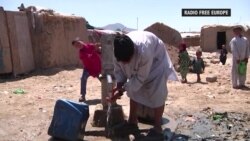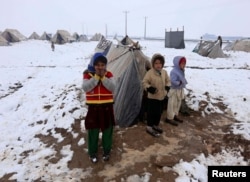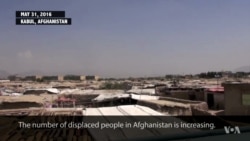The number of Afghans who have fled violence and remain trapped in their own country has doubled over the past three years, says a new report by Amnesty International.
A staggering 1.2 million people are internally displaced in Afghanistan, showing a dramatic increase from some 500,000 in 2013, says the report in an attempt to cast a fresh light on the country’s forgotten victims of war. It comes amid fears of an escalation in the Taliban-led insurgent attacks this year.
“Even after fleeing their homes to seek safety, increasing numbers of Afghans are languishing in appalling conditions in their own country, and fighting for their survival with no end in sight,” warned Amnesty’s South Asia Director Champa Patel.
Afghans already form one of the world’s largest refugee populations, with an estimated 2.6 million of them living in neighboring Pakistan and Iran, according to the U.N. refugee agency.
“While the world’s attention seems to have moved on from Afghanistan, we risk forgetting the plight of those left behind by the conflict,” said Patel.
Despite the promises made by successive Afghan governments, internally displaced people (IDPs) in Afghanistan continue to lack adequate shelter, food, water, health care, and opportunities to pursue education and employment, according to Amnesty International’s findings.
The research found the situation facing IDPs has dramatically worsened over the past years, with less aid and essentials, such as food, available,
It blamed alleged corruption, a lack of capacity in the Afghan government and fading international interest for a lack of implementation of a new national IDP Policy launched in 2014.
Instead, the report says, forced evictions by both the government and private sectors is a daily threat to the IDPs.
WATCH: Amnesty Report Calls for More Aid for Afghan Refugees
“The Ministry of Refugees and Repatriation, charged with coordinating the Policy’s implementation, is badly under-resourced and has been beset by corruption allegations for years,” it added.
Most of the internally displaced population lacks basic health care facilities, and education for IDP children has been interrupted since they were forced to leave their homes.
“They have lost the traditional sources of their livelihoods, and only have few opportunities for informal work, creating circumstances where women are excluded, and children are being exploited and not educated,” said Patel.
Amnesty International has called on the Afghan authorities and international community to immediately ensure that the most urgent needs of those displaced are met.
“Afghanistan and the world must act now to end the country’s displacement crisis, before it is too late,” Patel warned.
The Afghan government has not yet commented on Amnesty's report.







